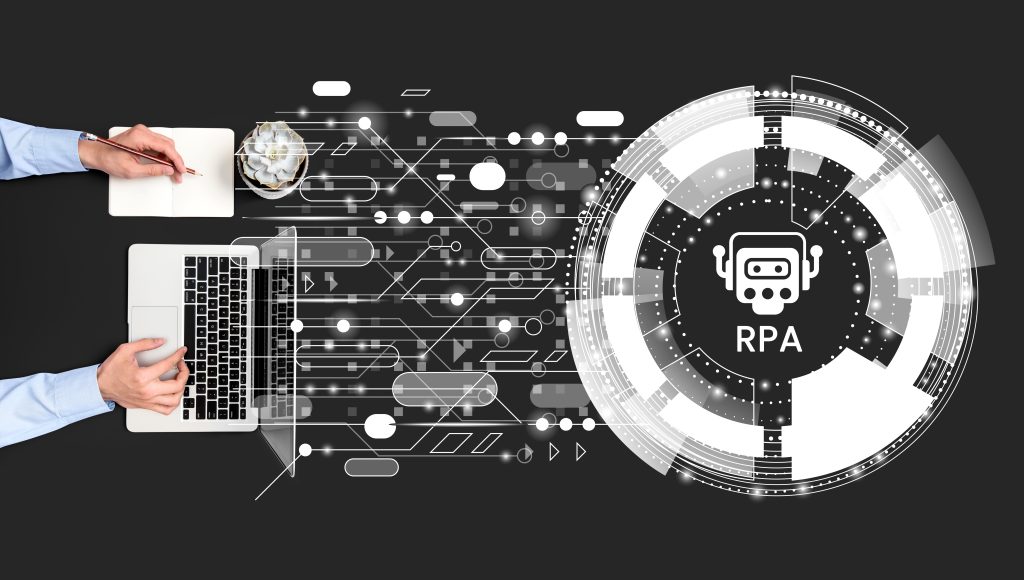In the modern digital world, companies are always on the lookout to edge out operations and cut costs to boot increasing accuracy. The one technology that stands out as a viable way to achieve these objectives is Robotic Process Automation(RPA). RPA employs programs that mimic human behavior or the so-called “bots” to automate repetitive and ruled-based tasks. This gives a chance to human workers to spend more time with more strategic and value-added activities. This article examines the idea of RPA, its benefits, applications, and the future development of this innovative technology.

Table of Contents
What is Robotic Process Automation (RPA)?
Robotic Process Automation (RPA) is a technology by means of which software robots execute human tasks. Basically, the robots carry out certain business process by interacting with the digital systems without human intervention. The bots are able to do a broad range of things. They include data entry, transaction processing, and customer service interactions. Robotics technology is one of those technologies which can work at high accuracy and speed. RPA actually goes to the user interface of applications in the same way as a human user does. It is a flexible way of process automation and is not troublesome as well.
Benefits of RPA
The use-case of RPA offers multiple advantages to firms of every sector:
- With the help of Robotic Process Automation bots a business can scale and perform at a much quicker pace as well. They work without a single stop during a whole 24-hour cycle to make sure an operation continues in a fast and efficient way.
- By the automaton of repetitive tasks the need of workers is decreased thus labor costs are minimized as well as the quantity of manual input.
- More Accuracy: Automation guarantees a reduction in human-related errors that jeopardize accurate and consistent performance of tasks.
- Scalability: The automating solutions can be adapted according to the present requirement whether being at the high or low end.
- Better Employee Morale: RPA drives employee satisfaction to new levels through eliminating those annoying tasks and allocating them to the more interesting ones. Moreover, the employees’ mood becomes better.

Applications of RPA
RPA is a versatile technology that can be applied across various industries and business functions. Some common applications include:
- Finance and Accounting: Robotic Process Automation technology has much of its promised value realized with the financial functions such as automating invoices, processing payroll, and handling financial reporting more efficiently as the finance department also gets the advantages of quicker and accurate operations.
- Customer Service: Through programmed bots, the process of order updating, handling of the request for part replacement and customer information updating is done automatically. The results are an improved customer experience.
- Human Resources: The technology of RPA brings in automation and reorganization to the mundane and routine processes of the HR department such as employee onboarding, benefits administration, time sheeting, and etc. As a result it replaces the manual data entry practice and reduces administrative costs.
- Supply Chain Management: Robotic Process Automation acts as a lever in the warehouse and distribution center. It doesn’t only include the inventory improvement of the warehouse but also the order process and the constantly changing delivery conditions. Thus, it ensures the effectiveness and the velocity of the whole system.
- Healthcare: The main care processes, for example, patient scheduling, claim processing, and medical record management, are successfully executed with the help of the robot. This way it becomes more efficient and error-free while simultaneously helping medical workers save time through automation.
Implementation Challenges
While RPA offers numerous benefits, its implementation is not without challenges. Some common hurdles include:
- Process Complexity: Therefore, identifying and automating complicated processes is a difficult task and may require a large amount of time in process analysis and redesign.
- Change Management: Making sure employees get on board can be a challenging thing, as well as managing the shift from manual to automated processes. Therefore, it will involve proper communication and training.
- Integration Issues: Besides that, integrating Robotic Process Automation bots with existing IT systems and applications might involve various technical problems that call for careful planning and coordination.

The Future of RPA
The future of RPA is indeed very promising. The developments in artificial intelligence (AI) and machine learning (ML) nowmore than ever stand the RPA in good stead to increase the scope of its capabilities. The new technology called Intelligent Process Automation (IPA) is a blend of RPA, AI, and ML.
This combination allows the bots to interact more complexly. Such issues include mental tasks like taking a decision and understanding language the way humans do. This change, in turn, will expand the field of automation and thus the automation of an even larger range of business processes. Who is an RPA Developer?
RPA technology will grow due to the ongoing evolution of technology over time, and it will get more acceptance across different industries. As a result, productivity will increase, costs will decrease and novel products will be developed. Firms committed to RPA will prosper in the era of digitalization. They have to make the appropriate investments in infrastructure and expertise.
Conclusion
Robotic Process Automation (RPA) is driving a paradigm shift in the functionality of enterprises by automating repetitive and rule-based tasks. In addition, RPA is a tool that offers many advantages. It is involved in time savings, reduced costs, and high accuracy which is why it is a tool that organizations want to implement to improve their performance.
Nonetheless, it should be made clear that there are no easy ways to implement this technology. However, the amount of time and effort required to implement it is well worth it. The application of AI and ML in the future will obviously make the RPA even more promising. Businesses will greatly benefit from automation upgrades and innovation. Through the application of RPA, businesses will achieve huge productivity gains. They will increase the level of competition and lower costs as well as find a new way for the future to unfold.















